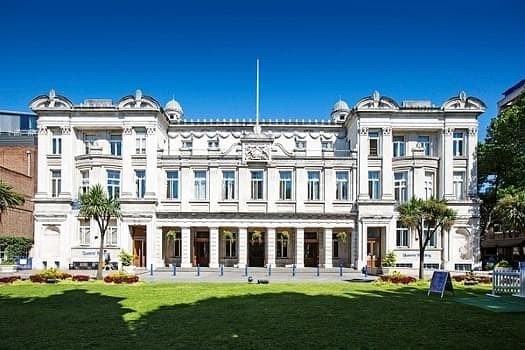Structure
You can complete your Physics degree in three, four or five years. If you are a BSc student and choose to study abroad, your time abroad will be during Year 3 and Year 3 modules will instead be studied in Year 4. If you are an MSci student and choose to study abroad, this will take place in Year 4 and Year 4 modules will be studied in Year 5.
YEAR 0
Foundation
One Year-long double module allocated based on previous maths qualifications:
Mathematics A or
Mathematics B
Semester 1
Compulsory
- Physics - Mechanics and Materials
- Essential Foundation Mathematics
- Communication in Science and Technology
Semester 2
Compulsory
- Physics - Fields and Waves
- Physics - Electricity and Atomic Physics
- Discrete Mathematics
Please note that all modules are subject to change.
YEAR 1
Compulsory
- Classical Physics
- Electric and Magnetic Fields
- Mathematical Techniques 1
- Mathematical Techniques 2
- Modern Physics
- Professional Skills for Scientists (including introduction to programming)
- Scientific Measurement
Option
- Our Universe
- Introduction to Data Science
Please note that all modules are subject to change.
YEAR 2
Compulsory
- Condensed Matter A
- Electromagnetic Waves and Optics
- Physics Laboratory
- Quantum Mechanics A
- Thermodynamics
Choose three from
- Introduction to Scientific Computing
- Mathematical Techniques 3
- Nuclear Physics and Astrophysics
- Physical Dynamics
- Physics of Energy and the Environment
- Stars
Please note that all modules are subject to change.
YEAR 3
Compulsory
- Extended Independent Project (BSc)
- Quantum Mechanics and Symmetry (MSci)
- Quantum Mechanics B (MSci)
- Physics review project (MSci)
- Statistical Physics
Choose five (BSc) or four (MSci) from
- Elementary Particle Physics
- Fluid Dynamics
- Group Projects for Physicists
- Mathematical Techniques 4
- Physical Cosmology
- Quantum Mechanics and Symmetry
- Quantum Mechanics B
- Radiation Sensors
- Spacetime and Gravity
- Statistical Data Analysis
- The Physics of Galaxies
Please note that all modules are subject to change.
YEAR 4
MSci only
Choose from
- Physics Research Project (30 credit module)
Choose five from
Modules offered at Queen Mary
- Advanced Cosmology
- Advanced Quantum Field Theory
- Astrophysical Plasmas
- Differential Geometry in Theoretical Physics
- Electromagnetic Radiation in Astrophysics
- Extrasolar Planets and Astrophysical Disks
- Functional Methods in Quantum Field Theory
- Practical Machine Learning
- Relativistic Waves and Quantum Fields
- Relativity and Gravitation
- Solar System
- Stellar Structure and Evolution
- Supersymmetric Methods in Theoretical Physics
- The Galaxy
Modules currently offered at other University of London institutions are subject to change at short notice.
Modules offered at King's College London
- Advanced Photonics
- Molecular Biophysics
- Dark Matter and Dark Energy
- Dynamical Analysis of Complex Systems
- Elements of Statistical Learning
- Environmental Remote Sensing
- Equilibrium Analysis of Complex Systems
- Lie Groups and Algebras
- Mathematical Biology
- Mathematical Methods for Theoretical Physics
- Modelling Quantum Many Body-Systems
- Standard Model Physics and Beyond
- String Theory and Branes
- Supersymmetry
- Theoretical Treatment of Nano-Systems
- Theory of Complex Networks
Modules offered at Royal Holloway
Computer Simulation in Condensed Matter
Nuclear Magnetic Resonance
Particle Accelerator Physics
Physics at the Nanoscale
Quantum Electronics of Nanostructures
Statistical Data Analysis
Statistical Mechanics
Superfluids, Condensates and Superconductors
Modules offered at University College London
- Advanced Physical Cosmology
- Advanced Quantum Theory
- Advanced Topics in Statistical Mechanics
- Atom and Photon Physics
- Galaxy Dynamics, Formation and Evolution
- Molecular Biophysics
- Molecular Physics
- Order and Excitations in Condensed Matter
- Particle Physics
- Planetary Atmospheres
- Quantum Computation and Communication
- Solar Physics
- Space Plasma and Magnetospheric Physics
Please note that all modules are subject to change.

